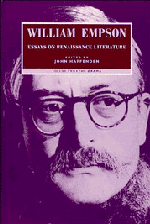9 - Elizabethan spirits
Published online by Cambridge University Press: 03 February 2010
Summary
(FRANCES YATES, THE OCCULT PHILOSOPHY IN THE ELIZABETHAN AGE, 1979)
Something badly needed has got left out from the great structure that Dame Frances Yates has been building as an exposition of her view of the occult tradition. I have felt it since her book on Bruno (1964), though I am ill-equipped to complain. Still, my ideas derive from a critic who had something of her own range of knowledge, and she seems to ignore his views, so I may speak up.
C. S. Lewis, in the first chapter of his survey of English sixteenth-century literature (1954), said that earlier writers had treated magic as fanciful and remote, but in this period they felt it might be going on in the next street; and one reason was a thing they surprisingly called ‘Platonism’: ‘the doctrine that the region between earth and moon is crowded with airy creatures who are capable of fertile unions with our own species’. Another reason for feeling at home with the spirits was the doctrine ‘that the invisible population of the universe includes a whole crowd of beings who might almost be called theologically neutral’. That is, they die like the beasts, and never come before the Judgment Seat; they are ‘far from Heaven, and safe from Hell’. They are not morally neutral, being a mixture of good and bad like ourselves: but they are not angels or devils, permanently engaged in a Manichaean battle, wearing the uniform either of God or Satan. Clearly, this makes them likely to be useful to us, perhaps even to tell the secrets of nature, if we have something to offer in return.
- Type
- Chapter
- Information
- William Empson: Essays on Renaissance Literature , pp. 155 - 169Publisher: Cambridge University PressPrint publication year: 1994



